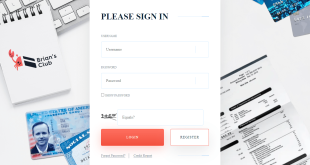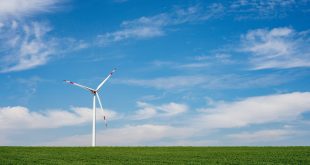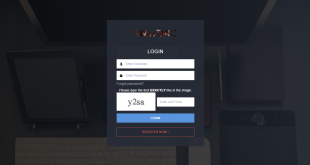In recent years, blockchain technology has emerged as a groundbreaking tool in various industries, offering unprecedented transparency, security, and efficiency. One of the most exciting applications of blockchain is the tokenization of real-world assets (RWAs). This process allows physical and traditional assets such as real estate, commodities, and even art to be represented digitally on a blockchain, creating opportunities for fractional ownership, enhanced liquidity, and more efficient transactions. In this article, we will explore Blockchain RWA, its impact on asset tokenization, and how it is revolutionizing industries globally.
What is Blockchain RWA?
Before delving into the implications of Blockchain RWA, it’s essential to understand the two key components: blockchain and real-world assets.
Blockchain: The Digital Ledger
At its core, blockchain is a decentralized, distributed ledger technology that securely records transactions across multiple computers. This technology is designed to ensure data integrity and prevent tampering. Each transaction or data entry is stored in a “block,” and these blocks are linked to form a “chain,” hence the term blockchain. Blockchain’s key attributes—transparency, immutability, and decentralization—make it ideal for securely tracking ownership and transactions.
Real-World Assets (RWAs)
Real-world assets refer to tangible and valuable items that exist in the physical world, including real estate, commodities, financial instruments, and intellectual property. These assets have traditionally been difficult to transfer, divide, or trade, primarily due to legal, logistical, and geographical constraints. Blockchain technology seeks to overcome these challenges by representing these physical assets in digital form.
Blockchain RWA: Tokenizing Real-World Assets
Blockchain RWA is the process of converting physical assets into digital tokens on a blockchain. A digital token represents ownership of a real-world asset, allowing it to be traded, sold, or transferred in a completely digital environment. These tokens are often referred to as asset-backed tokens or security tokens.
For example, a real estate property can be tokenized by breaking it down into fractions (tokens) that can be sold to multiple investors, allowing individuals to own a portion of the property without having to buy the entire asset. This concept opens up opportunities for fractional ownership, where people can invest in high-value assets that were previously out of reach.
How Blockchain RWA Works
The process of tokenizing RWAs involves several steps, each designed to ensure transparency, security, and legal compliance:
- Asset Identification and Valuation: The first step in the tokenization process is identifying and valuing the real-world asset. This could involve property appraisals, commodity assessments, or financial asset evaluations.
- Legal Framework: A critical aspect of tokenizing RWAs is ensuring the legal validity of the tokens. This involves working with legal professionals to create the necessary documents and ensure compliance with relevant regulations, such as securities laws.
- Smart Contracts: Blockchain RWA often leverages smart contracts—self-executing contracts with predefined rules written into code. These contracts automatically execute transactions when certain conditions are met. Smart contracts are used to govern the ownership, transfer, and sale of asset-backed tokens.
- Token Creation: Once the asset is legally validated and appraised, a blockchain-based token is created to represent ownership of the real-world asset. This token can be a fraction of the total asset, allowing multiple investors to share ownership.
- Market Access and Trading: After the tokens are created, they can be traded on blockchain-based platforms, such as decentralized exchanges (DEXs) or other digital asset markets. These platforms allow users to buy, sell, or trade tokenized assets, providing liquidity to traditionally illiquid markets.
Benefits of Blockchain RWA in Tokenization
Blockchain RWA is transforming industries by offering numerous benefits. Some of the most significant advantages of tokenizing real-world assets include:
1. Fractional Ownership
Tokenization allows real-world assets to be divided into smaller, tradable units (tokens). For example, a property worth $1 million can be broken down into 1,000 tokens, each worth $1,000. This enables fractional ownership, allowing investors to own a portion of the asset without having to purchase it in its entirety. This opens up investment opportunities to a broader range of people, democratizing access to high-value assets.
2. Increased Liquidity
One of the biggest challenges with traditional assets is their lack of liquidity. Real estate, for instance, can take months or even years to sell. Blockchain RWA provides liquidity by enabling the quick transfer of ownership through tokenized assets. Investors can trade their tokens on blockchain platforms, allowing them to enter or exit positions in a much faster and more efficient manner.
3. Global Accessibility
Tokenized assets are available to anyone with an internet connection. This global accessibility eliminates geographic barriers, allowing people from all over the world to invest in real estate, commodities, and other assets that would have previously been limited to specific regions. Additionally, tokenization simplifies cross-border transactions, as blockchain can operate without intermediaries.
4. Transparency and Security
Blockchain’s transparent nature allows investors to track ownership and transaction history in real time. Every transaction is publicly recorded on the blockchain, providing a tamper-proof record of ownership. This level of transparency ensures that investors can verify the legitimacy of their investments, while blockchain’s cryptographic security guarantees that transactions are secure and resistant to fraud.
5. Reduced Costs and Time
The traditional process of transferring assets often involves numerous intermediaries, such as brokers, lawyers, and banks, each adding fees and delays. With blockchain RWA, many of these intermediaries are replaced by automated smart contracts and blockchain infrastructure, reducing both costs and the time required to complete a transaction.
6. Enhanced Diversification
Through tokenization, investors can diversify their portfolios by purchasing smaller stakes in a range of real-world assets, including real estate, art, and commodities. This diversification helps spread risk and offers greater potential for returns.
Real-World Applications of Blockchain RWA
Blockchain RWA has the potential to revolutionize several industries by tokenizing assets that were previously hard to access or manage. Some prominent applications include:
1. Real Estate Tokenization
Real estate is one of the most significant sectors benefiting from blockchain RWA. Traditional real estate investments often require large capital, making it difficult for small investors to participate. Blockchain RWA allows properties to be tokenized, enabling fractional ownership and lowering the barriers to entry. Investors can purchase tokens representing a share of a property and receive dividends or capital appreciation based on the property’s value.
2. Commodity Tokenization
Commodities like gold, oil, and agricultural products are also being tokenized using blockchain. By creating digital tokens backed by physical commodities, blockchain allows investors to buy and trade fractional ownership in these valuable assets. This can provide a new form of diversification for investors and a more efficient way to trade commodities.
3. Art and Collectibles
Blockchain RWA is also making waves in the world of art and collectibles. High-value pieces of art can be tokenized, allowing investors to own a share of a famous painting or sculpture. This opens up new opportunities for art investors and provides liquidity to a market traditionally known for its illiquidity.
4. Securitization of Financial Assets
Financial instruments like bonds, loans, and shares can be tokenized and traded on blockchain platforms. This process, known as security token offerings (STOs), offers a way to digitize and trade financial assets while complying with securities regulations.
Challenges and Considerations
While Blockchain RWA offers numerous benefits, there are also challenges and considerations to be mindful of:
- Regulatory Compliance: The legal and regulatory landscape surrounding tokenization is still evolving. Blockchain RWA projects must ensure they comply with securities laws, tax regulations, and property rights laws in various jurisdictions.
- Valuation and Auditing: Accurate asset valuation and independent auditing are crucial to ensure the legitimacy and value of tokenized assets.
- Adoption and Awareness: Widespread adoption of blockchain RWA may take time as many people are still unfamiliar with the concept of tokenizing assets. Additionally, educating regulators and financial institutions is essential to facilitate smoother integration.
Conclusion
Blockchain RWA is a game-changer for asset tokenization, bringing increased liquidity, fractional ownership, transparency, and global access to industries such as real estate, commodities, and art. As blockchain technology continues to evolve, the potential for tokenizing real-world assets will expand, providing new opportunities for investors and businesses alike. Despite challenges such as regulatory uncertainty and market adoption, the future of Blockchain RWA looks promising, with the ability to democratize access to high-value assets and revolutionize global investment strategies.
As more companies and investors explore the possibilities of Blockchain RWA, this technology is set to become a key driver of innovation in the financial and asset management industries. Whether you’re a seasoned investor or a newcomer looking for opportunities, Blockchain RWA represents a transformative shift in how we view and trade real-world assets.
 Daily Blogger News Stay updated with the latest trends and insights. Your reliable source for daily updates and information.
Daily Blogger News Stay updated with the latest trends and insights. Your reliable source for daily updates and information.







